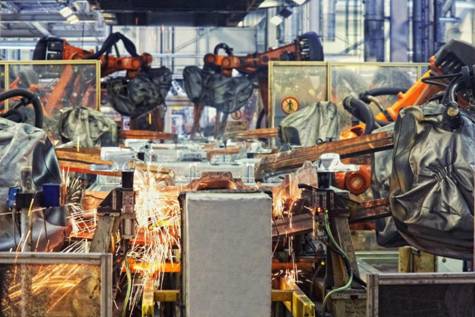
Manufacturing processes have benefited from robotic automation systems—helping grow industrial processes by keeping them competitive in the industrial sector while simultaneously improving products, work environment, and safety.
Today’s automated factories—or smart factories—have managed to bet on the concept of sustainability by applying the innovations of new technologies. A specialized group of 12 researchers, manufacturers, and technology providers who investigated what they called the AREUS Project, dedicated to reducing the amount of energy that robots use, recently addressed an issue.
This research group designed an energy-efficient factory network system that is well adapted to renewable energies, together with IT tools that optimize the use of energy and economic means. With this innovative proposal, they seek to minimize manufacturing costs by making factories more sustainable.
The AREUS project was directed toward the research and development of a platform incorporating technology, modular and interdisciplinary, that provides robotic factories with energy efficiency, material savings, and a minimum environmental impact. Through an eco-programmed method with the ability to assess the life cycle (LCA).
According to the coordinator of the project Marcello Pellicciari from the University of Modena and Reggio Emilia in Italy. “In the AREUS factory grid system, AC (alternating current) power is immediately converted to DC (direct current) when it enters the system, so fewer conversions are required. Every time you convert AC to DC, you lose power. AREUS’s DC network reduces losses in the conversion stage, allows factories to recover energy when a robot brakes to slow down or stop, and can also use a variable supply of renewable energy more easily and efficiently. “The purpose is to exchange/store/recover energy at the factory level.
The above information shows that there is a saving of 5% to 9% of a typical factory’s energy consumption. The reason is that the network system uses fewer transformers, and the use of copper in common networks is minimal.
The AREUS project proposes four innovations:
An integrated set of energy reduction technologies (R-ECO) based on a novel factory electrical energy supply system to exchange, collect, store, and recover energy at the factory level, thereby improving the use of renewable energy.
An integrated design and simulation environment for robotic production systems (R-ID) for the eco-efficient design of robotic plants focused on the simulation of energy flows under a product-process-production systems eco-evolution approach robotic.
A robotic manufacturing process optimization environment (R-OPT) for optimal scheduling of sustainable production under a control engineering approach.
LCA (R-LCA) methods to evaluate and optimize environmental and economic costs related to Material, Energy, and Waste (MEW) flows of products and processes in co-evolution carried out with robotic production systems.
In the new industrial revolution 4.0, integrating a system of new technologies that causes a minimum environmental impact and achieves energy conservation is an important element for sustainability, without neglecting the economic benefit that influences the factory.
If you want to buy used industrial robots and robotic parts online for sale, get in touch with Used Robots Trade. The company has garnered an unparalleled reputation in the sales and refurbishment of used and new robots at cost-effective rates. They deal in KUKA robots, MITSUBISHI robots, FANUC, and other robots from other top manufacturers. They offer an extended warranty of 6 months on all their industrial robots.
Connect with them for information and queries.
Information source: https://cordis.europa.eu/project/id/609391/reporting/es
